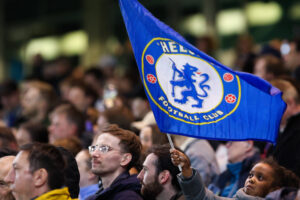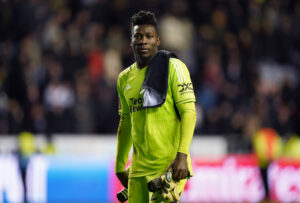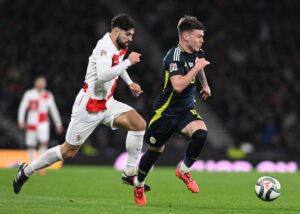RB Leipzig have brought widespread controversy to German football since their promotion to the Bundesliga in 2016. Owned by Austrian energy drink Red Bull, many opposing supporters have organised protests at their matches, even resorting to boycotts, at the way their club is run. Die Bullen are known as ‘football’s enemy’ in Germany and have experienced clashes with enraged fans at numerous games.
At Signal Iduna Park last season, Borussia Dortmund pelted the Leipzig fans with missiles and beer. Dortmund fans boycotted the return fixture at the Red Bull Arena as they didn’t want their money going to Red Bull’s funds. Against Union Berlin in a 2.Bundesliga game, Berlin fans dressed in black and had 15 minutes of silence at the start of the game, aiming to create a funeral atmosphere. Leipzig have become a reviled team in German football which stems from their origins and quick escalation into the Bundesliga.
RB Leipzig’s short history
In the 2009/10 season, Red Bull took over SSV Markranstädt, who were in the fifth tier of the German League without a rich history or large fan base. They were an ideal club for Red Bull to purchase after being driven away from other German teams. This is one of Red Bull’s many footballing ventures, which include taking over SV Austria Salzburg and the Metrostars in Major League Soccer. RB Leipzig were formed and other German clubs started to question the millions of pounds which Red Bull were investing into the club.
Their stadium is known as the Red Bull Arena and German fans were furious that the club seemed to exist just to market the energy drink. RB Leipzig named themselves RasanBallSport—’Lawn Ball Sport’ in English—as the German league stopped them from naming themselves after Red Bull due to strict rules about corporate sponsors buying clubs and using their own logo.
Corporate Involvement
Leipzig are complying with the ’50+1 rule’ of the German leagues, where a club must hold a majority of its own voting rights. The rule is designed to ensure that the club’s members retain overall control, protecting clubs from the influence of external investors like Red Bull.
This rule is controversial, however, as other Bundesliga clubs haven’t had to comply due to being owned before the ruling took place in 1999. Bayer Leverkusen have been owned by a pharmaceutical company for many years, whilst Wolfsburg are owned by Volkswagen. In addition, Hoffenheim are bankrolled by SAP founder Dietmar Hopp and have attracted much criticism for this. RB Leipzig, though, have attracted the most negative media coverage, but some of their footballing philosophy is starting to gain appreciation throughout the football world.
RB Leipzig’s investment in youth
The club have gained admirers due to their sustainable model and strong investment in youth. The German team focus on nurturing young players and giving them much-needed game time. Rather than buying top players, they focus on buying young players in the 18-24 age range. Last season, the average age of their squad was in the region of just 23.
Players such as Naby Keita, Timo Werner, Marcel Sabitzer and Emil Forsberg were all purchased at a young age. All were raw talents with plenty to prove. Werner scored 21 goals in the Bundesliga last season and has scored six goals in eight caps for Germany, despite only costing the club €10 million. Naby Keita signed from Austrian champions, Red Bull Salzburg, for €11 million and will sign for Liverpool in July 2018 for £48 million.
Energetic pressing
The team’s game focuses on energetic pressing under the tutorship of Ralf Rangnick, a prominent figure in German football. Rangnick is Sporting Director of RB Leipzig and the 56-year-old has coached Schalke, Hannover and Hoffenheim. His philosophy focuses on a team structure with no individuality.
Rangnick installed a high pressing game into the side which current manager, Ralph Hasenhuttl, has progressed. Leipzig tend to play a 4-4-2/4-2-2-2 formation with very narrow wingers, pressuring opponents very early on in the build-up phase to set up traps and regain possession. Once a player starts to win back possession, this creates a pressing trigger for other players. Players then have a focal point to win back the ball.
Leipzig play very progressive football which contributed to their runners-up finish last season. For the first time in their short history, they will play in the Champions League this year. In their group, they will meet Ligue 1 champions Monaco, Turkish champions Besiktas and two times European champions, Porto.
Hopes for the season
With Champions League football on the horizon, Die Bullen may find it harder this season in the Bundesliga. Borussia Dortmund look stronger under former Ajax coach Peter Bosz whilst Hoffenheim continue to improve under Julian Nagelsmann. If they continue their investment in youth and develop their energetic pressing, however, they could still be a force. Most of the football public will be against them but if they develop this philosophy and progressive tactics, they may gain some followers along the way.
Main Photo
Embed from Getty Images






